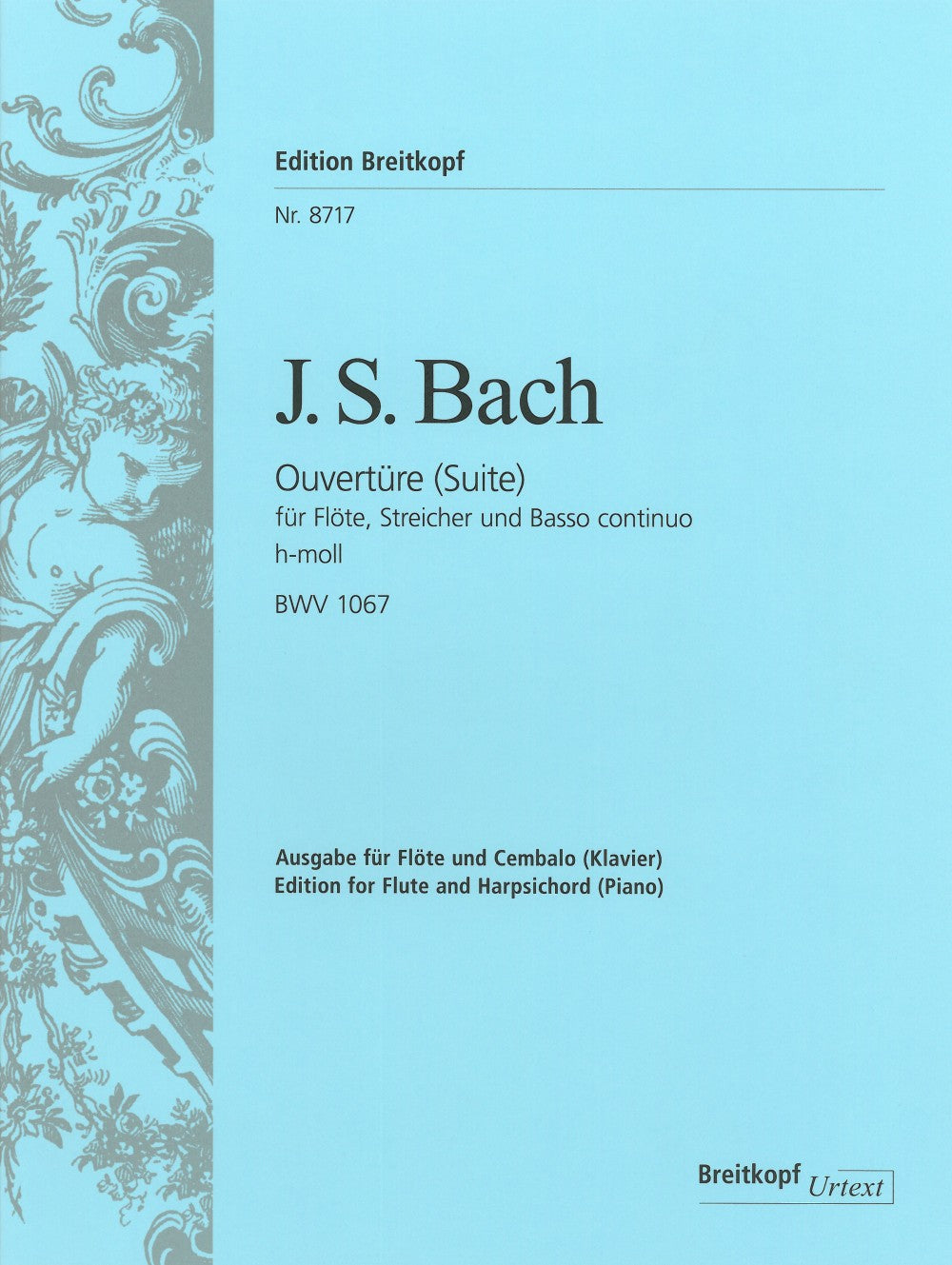The copies made by Christian Friedrich Penzel (parts 1755c, score 1760c), which are also located there, were consulted for purposes to use these sources for this edition.
When the concertante flute and the first violin play in unison, the performance instructions and expression marks are often not identical in the score. In this edition, the markings missing in one instrument were borrowed from the other, albeit designated as additions so that performers are free to adjust their parts at will.
In his arrangement for flute and harpsichord (piano), Werner Breig has consistently opted for the elegance and lightness of the original version for flute, strings and continuo. Wherever it was difficult to adapt the string part of the famous B minor Suite to the piano, he followed the precept that "less is more" and showed his true mastery as an arranger by leaving things out. The flute part, however, has remained unchanged, which allows this new edition for flute and harpsichord (piano) to be used for studying and rehearsing the piece in its original setting.

